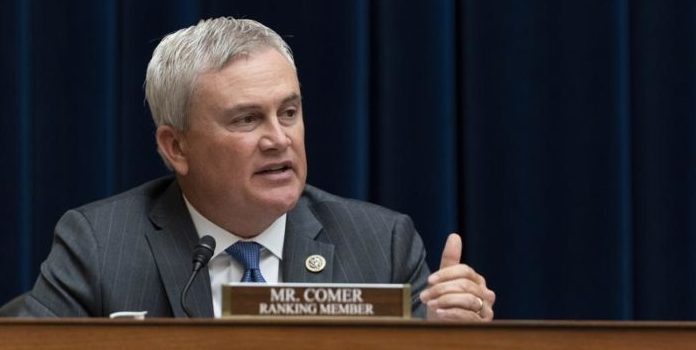(By Kim Jarrett, The Center Square) Democrats and Republicans presented different definitions of environmental, social and governance investment standards, with Illinois State Treasurer Michael Frerichs calling it “data about value, not values” and two Republican attorneys general calling it a political agenda that hurts investment.
The House Oversight Committee held a hearing on ESG Wednesday that included Frerichs, Utah Attorney General Sean Reyes and Alabama Attorney General Steve Marshall.
The fight over ESG policies has occurred mainly at the state level, where legislatures have passed laws banning financial companies that use ESG standards from doing business with their state. Twenty-six attorneys general, including Reyes and Marshall, sued the Biden administration over allowing companies to prioritize ESG standards when choosing retirement plans.
Reyes called ESG an “undemocratic tax” on the economy and productivity.
“I’m here to warn you about the process involved in effectuating ESG goals,” said Reyes. “No matter how much you may agree with the policy being pushed if you deconstruct the process, it is a flawed and dangerous one and may also be illegal.”
Frerichs had a different definition of ESG, calling it “data.”
“ESG is simply additional information that investment professionals use to assess risks and return prospects,” Frerichs said. “The more data we, as investors have, the better informed our decisions are when selecting investments over the long-term.”
The two parties also disagreed over the costs of ESG. Republicans said ESG-based investments did not perform well. And ESG standards, particularly when it comes to fossil fuels, drive up consumer prices.
“If you look, particularly what’s driven inflation and what’s hit Americans in the pocketbook, including Alabamians, it’s been an increased cost of energy, part of that is attributable to decreased investment in what is currently producing the energy in our country itself,” Marshall said.
“But beyond that, particularly, for example, in agriculture, is going to be the attack on agriculture as it relates to their responsibility, according to the left, for increased carbon emissions. The question is going to be do we find farmers discriminated against in their banking relationships, do we see farmers discriminated against in other financial relationships that impact their ability to do their job?”
Democrats said state bans on ESG investing have hurt states.
A report from The Brookings Institution released last month said Texas’ ESG policies could cost the state “$300-$500 million in additional interest on the $31.8 billion borrowed during the first eight months following the implementation of the law.”
Committee Chairman James Comer, R-Ky., said in a statement after the hearing the committee’s work on ESG was not done.
“No administration should be able to gamble with Americans’ retirements to fund its own political agenda in the private market,” Comer said. “We must expose and investigate the propriety and legality of this coordinated effort.”

